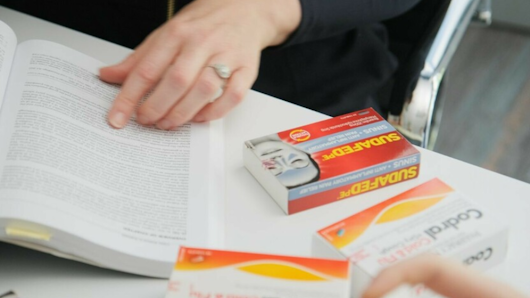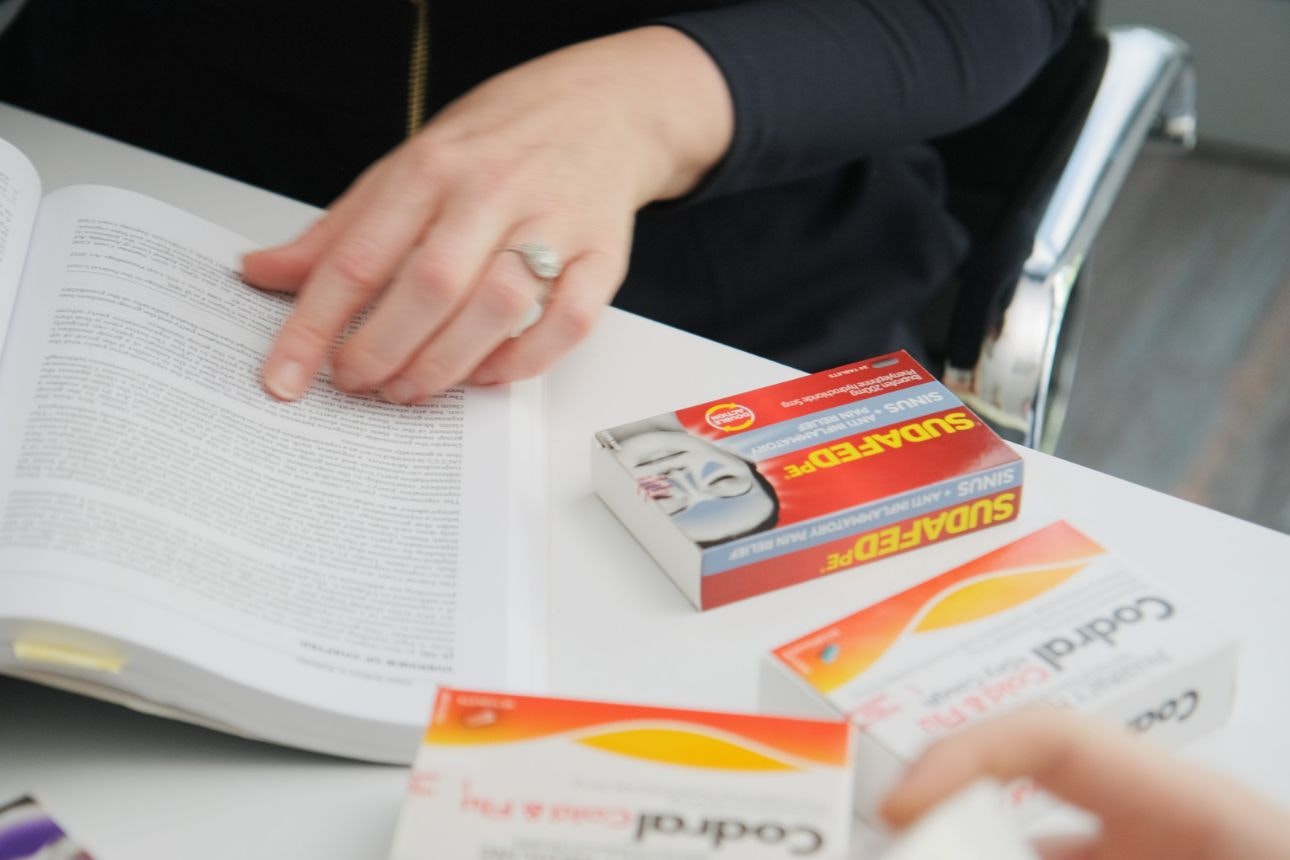
By Belinda Castles
Researcher | Kairangahau
One of America’s largest pharmacy chains no longer sells cold and flu remedies that contain oral phenylephrine as the only active ingredient. We asked New Zealand supermarkets and large pharmacy chains why these products are still being sold here.

The problem with phenylephrine
Consumer NZ’s 2024 investigation into cold and flu remedies found that evidence for the active ingredients in some cold and flu remedies, including phenylephrine, didn’t stack up. We found the remedies were no better than a placebo!
In 2023, the United States’ Food and Drug Administration (FDA) concluded phenylephrine is ineffective as a nasal decongestant when taken orally (usually in tablet or capsule form). Decongestants help open your airways by reducing the swelling of blood vessels in your nose and sinuses.
The effectiveness of phenylephrine has been debated for years. In 2017, we complained to the New Zealand Medicines and Medical Devices Safety Authority (Medsafe) about the registration and marketing of active ingredients in cold and flu products, including phenylephrine. Medsafe is the regulatory agency responsible for the safety and efficacy of medicines in New Zealand.
Last year, the FDA proposed banning oral phenylephrine as an active ingredient in over-the-counter products for the temporary relief of nasal congestion.
Earlier this year, a class action was filed against pharmaceutical giant Johnson & Johnson for allegedly selling these ineffective products. The class action includes well-known brands Benadryl, Codral and Sudafed.
One of the largest pharmacy chains in America, CVS Pharmacy, has announced it will no longer sell oral products that contain oral phenylephrine as the only active ingredient.
We’d like pharmacies and retailers in New Zealand to do the same.
So, why are these products still being sold in New Zealand?
We asked the supermarkets and main pharmacy chains whether they have considered removing products containing phenylephrine from sale. Here’s what they said.
Foodstuffs

“Foodstuffs has not made any decision to remove these products from our stores. We are aware of the developments overseas. We are also closely monitoring the class actions filed in New Zealand and Australia relating to these products.
“We will continue to monitor local and international regulatory developments and will work with supplier partners if the situation in New Zealand changes.”
Woolworths

“There have been no concerns raised by Medsafe, the New Zealand regulator. If there was a change in Medsafe’s position, we would review this.”
Chemist Warehouse

“Phenylephrine continues to be an approved medicine in New Zealand, and we understand there has been no recent review conducted by Medsafe that advises against the sale and supply of phenylephrine.
“While we recognise the issue raised, we must balance this with the needs of people who report favourable outcomes from using these products. Therefore, it remains important, at this stage, to maintain them as an option.
“We will continue to closely monitor the legislation, advice and any published guidelines from the Ministry of Health and other professional bodies. Should Medsafe or the Ministry of Health change the regulatory status or recommended use of oral phenylephrine-containing products, we will review our range in accordance with those recommendations.”
Bargain Chemist, Pharmacy Direct and Green Cross Health (Unichem and Life Pharmacy) did not respond to our requests for comment.
Medsafe’s response
We also asked Medsafe whether it thought about reviewing the efficacy of phenylephrine.
A spokesperson told us it’s aware the FDA is proposing to remove oral phenylephrine from the market due to concerns about its effectiveness. This is not a final decision, and the proposal is currently going through consultation. Medsafe will await further updates on the situation from the FDA.
Medsafe advises talking to your pharmacist about the best options for you when buying over-the-counter medicines.
The best thing for the common cold
Most over-the-counter medicines won’t offer anything more than a placebo effect.
If you’re not well, don’t soldier on. The best thing you can do is ask your doctor for a sick note to take a few days off work.
This has the added benefit of preventing you from passing on the virus.
For pain relief, everyday painkillers like paracetamol and ibuprofen are good options.

Have you bought any of these products since 2005? Join this class action
If you've bought Benadryl, Codral or Sudafed cold and flu remedies, you're eligible to join the class action lawsuit - and you don't need a reciept.



